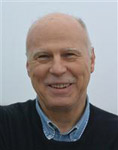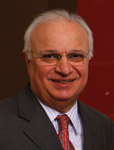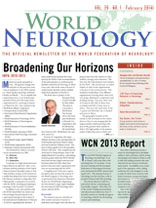By Wolfgang Grisold and Raad Shakir

Wolfgang Grisold
The WFN mission is to foster quality neurology and brain health worldwide. One of the cornerstones of this mission is to sponsor and support worldwide concepts of education. This is the function of the WFN Education Committee. In addition to other valuable tools as congresses, symposia, departmental visits and traveling fellowships.
The WFN has developed the concept of worldwide approved teaching centers. These centers should fulfill standards defined by the WFN in order to fulfill the role for training neurologists and perform this in a standardized internationally recognized manner. Moreover, these centers will be able to train neurologists from low income countries to further their education and improve their clinical and research abilities.

Raad Shakir
Once these centers are approved, they can offer training fellowships, in a neurological subspecialty as well as a full training program to produce neurologists who will go back and serve in their own countries. The WFN approval will therefore carry the stamp of international recognition on the status and performance of a training program.
The department visit process has been adapted from the UEMS (UEMS.net) department visitation process. This process assesses training centers, their hospital resources and equipment, and the training facilities, and has a system of assessing the opinions of all persons involved in the training process using standardized questionnaires. In addition to structured personal interviews, a randomly selected person from all groups is involved in the process. The analysis of the questionnaires and of the structured interviews are all part of the report, which also includes the activities of the hospital, access to other related fields (e.g., neurosurgery) and the completeness of the training program. The report concludes on the status of the present situation and also gives recommendations for further improvement and development.
The WFN Education Committee (Chair Steven Sergay and Co-Chair Wolfgang Grisold) has developed a structured and a well-organized questionnaire, which covers all aspects of a neurological training center. Prior to any visit, the size, structure as well as the personnel are to be explored. In addition, residents, trainers and hospital staff will be asked to answer standardized questionnaires, aimed at various educational aspects.
The NeurologyCenter in Rabat was the first neurological center worldwide to apply for this status.
The WFN committee consisted of Wolfgang Grisold (trustee, co-chair of the Education Committee), Raad Shakir (then WFN secretary-treasurer general) and Riadh Gouider (president of the Pan African Association of Neurosciences Societies). The visitors were welcomed by the faculty of the hospital and academic members of RabatUniversity. All information and facts about the hospital and the Moroccan neurology training system were presented.
The Rabat neurological department consists of several sections: an outpatient’s service which is closely associated with neurosurgery, neuroradiology, neuropathology and with the national center of rehabilitation and neurosciences.
The practical visit was guided through the neurological departments, as well as the laboratories, including histopathology, chemistry and genetics. During the visit, patients and trainees, as well as post-graduate and undergraduate students, were met and some questions and discussion were carried out.
The visit also included the electrophysiology laboratories, where practical teaching was observed. The associated departments of neurosurgery and neuroradiology were well equipped, modern CT, MRI, angiography suites and gamma knife were all observed. There is also a newly adapted rehabilitation unit. The outpatient and emergency as well as the consultation system of the hospital were looked at in detail. The academic research unit of the university provides laboratories including an animal house with space for scientific cooperation, which are open to projects from the neurological department.
The structure of the visit was supplemented by interviews with residents, teaching professors and hospital staff. These interviews were performed in a standardized written format, which was distributed prior to the visit to faculty and current residents. In addition, three teachers and four residents were randomly selected and attended personal interviews. They were asked standardized questions. Also the director of the hospital was personally interviewed. The visiting WFN committee carried out the confidential interviews. A résumé was contained in the report.
Based on the visit, including discussions, there were presentations of the faculty, and detailed analysis of the various aspects of the department. The visiting committee was fully satisfied that the Hospital Center Ibnou Sina, Rabat, is fully compliant with all aspects of a WFN training center. It will be able and willing to train not only its own national neurologists, but neurologists from Africa and elsewhere and will be providing one year fellowships, as well as a full four year training programs.
The concept of WFN teaching centers will be further developed, and the WFN website will provide a detailed definition of teaching centers, as well as the requirements, questionnaires and application details. Being a WFN teaching center is a sign of excellence and clearly conveys international recognition of the teaching center in that it fulfills all of the criteria in its structure, equipment and the teaching facilities needed to participate in the important role of neurology education in the future.
